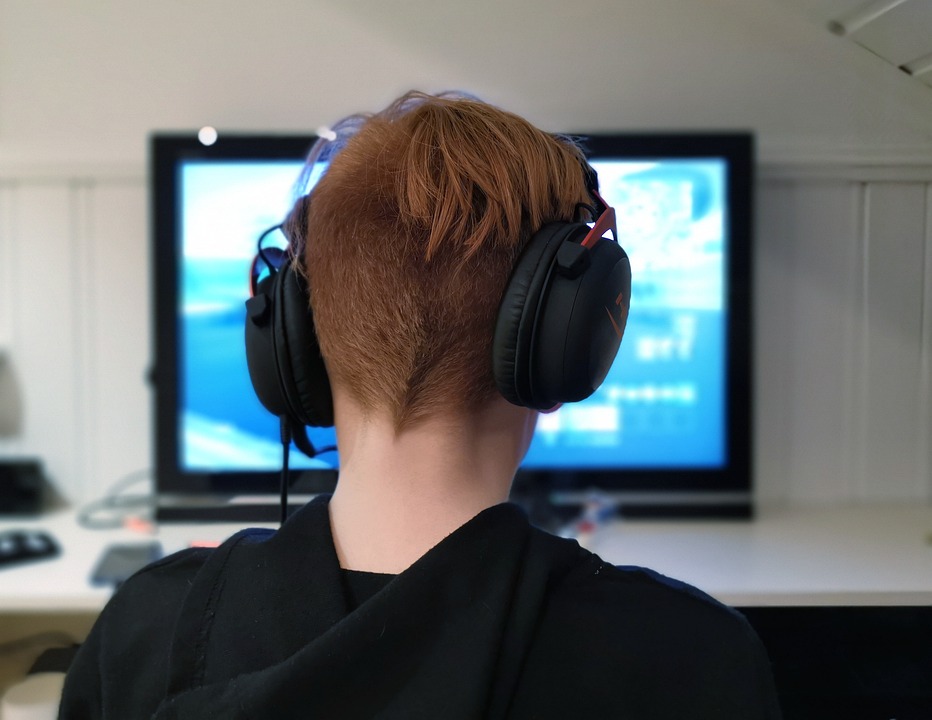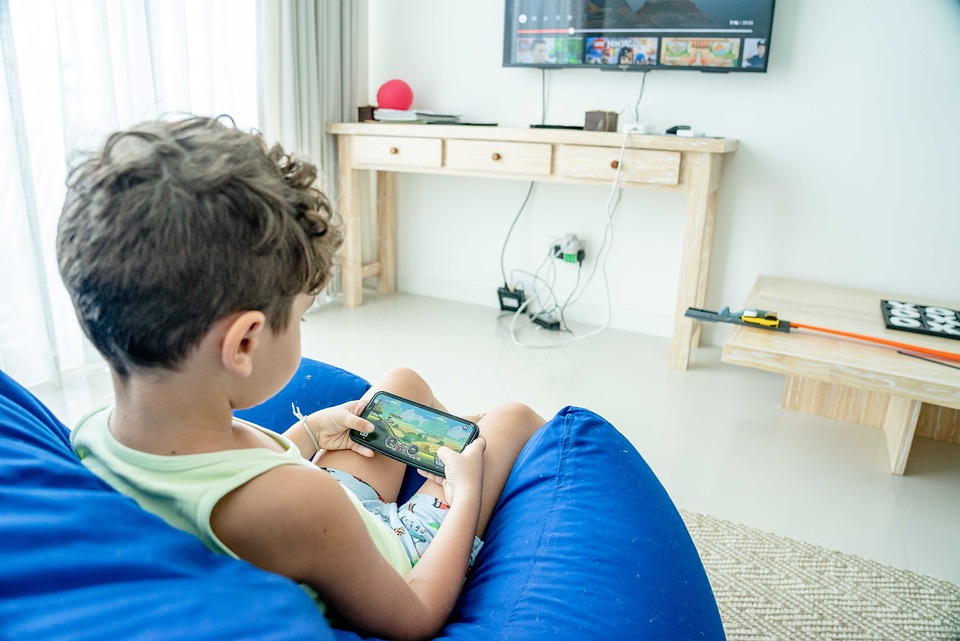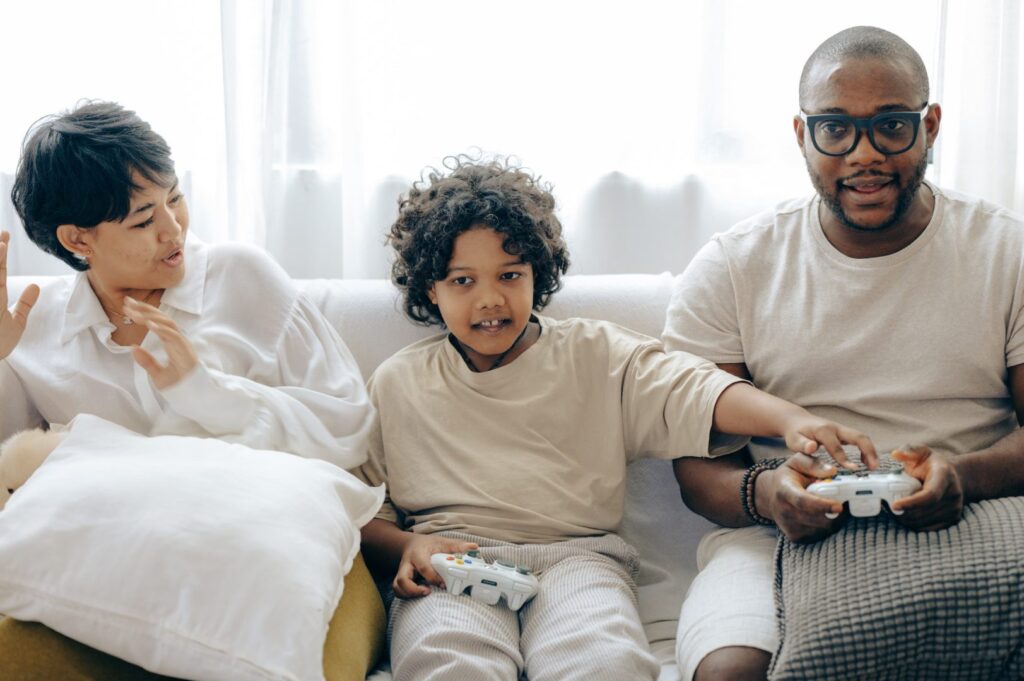I often ask myself a simple question, am I a successful parent? Do I manage to raise my kids into healthy people? Do I have enough time to spend with them?
Kids nowadays live in their virtual world, locked in their rooms with their screens. They also often develop addictions to their favorite toys.
In his article, we’ll go over the causes and symptoms of gaming addiction in your children.
What is a Gaming Addiction?
Showing an obsessive and passionate interest in video games and rejecting other activities (studying, playing, having dinner in front of the screens, etc.) is a gaming addiction.
How Parents Understand Gaming Addiction
In the beginning, our kids spend their free time playing video games alone or with friends, but after a while, we detect something weird, or abnormal even.
Our kids become absent for hours and change their behavior, which leads us to think and understand that our kid is obsessed with the game.

Characteristics of Gaming Addiction
Video games can interfere with kid’s life if they play a lot, changing their daily activities. Symptoms of excessive gaming can be:
- Playing video games for hours, constantly;
- Isolation from the real world;
- Denying having an addiction;
- Thinking and talking only about the game;
- Losing interest in other activities, including plans for the future;
- Behavior changes
- Physical changes
Reasons for Gaming Addiction in Kids
Usually, kids can’t communicate easily with other kids because they are shy or insecure and find pleasure in video games.
They fear the real world, have busy parents, and lack family communication. Video games act as stress relief, a way to run away from the present and all current problems.
What are the Factors That Contribute to Gaming Addiction in Kids
Whenever we can’t solve some problem, we are frustrated and emotionally hurt, and we usually get addicted to something creating another problem.
Our kids can suffer from psychological problems and develop gaming addiction as a way to resolve them.
Lack of Self-Esteem
Kids can get quite sad when they are not satisfied with their looks, their ability to learn and prove themself in school leading to a lack of self-esteem. And they use video games as a cure.
Depression and Anxiety
When children are sad or depressed, they often turn on their computers and just relax for some time.
Although that is a good way to let off some steam, it’s also a pathway to gaming addiction.

Escaping Reality
Children choose virtual reality to avoid unpleasant situations (finding a way to entertain themselves), which can cause this addiction.
Also, in families where the parents constantly argue and fight, there are bigger chances for kids to develop a gaming addiction.
Games are Everywhere
Kids can be easily attached to video games because of the pleasure that they feel while playing.
And they have the opportunity to find video games easily online for free, or pay a small amount of money (sometimes by stealing mommy’s or daddy’s credit card without asking).
Lack of parental advisory
It is cruel, but we parents sometimes are obsessed only with our profession and reaching our goals. Our children get the feeling that they can only find happiness in video games.
They often have everything except their parents’ affection and time. So, we parents must be aware that money doesn’t always solve the problem.
Social Pressure
Our kids want to be accepted by friend groups and communities, so they do everything only to be part of them.
And in today’s world, talking about video games is a frequent conversation among the youth.
Genetics
Studies say that genes combined with stress and life culture can be a reason for kids to get addicted to games.
Brain Structure and Function
The brain is our engine. When it produces happy hormones (dopamine), we are motivated and cheerful.
While playing video games, our kids’ brain gives them a pleasant and happy signal, and they get addicted to the game immediately.
Recognizing the Signs of Gaming Addiction
When kids face problems, it is obvious, and parents can react immediately. Game addiction points to signs that can easily be seen.
Behavioral changes

Kids living with this addiction play video games all the time, and their freedom and happiness depend on the game.
They don’t engage in other activities (not even school and social tasks), and they get aggressive and anxious if their tech is taken away.
They don’t want to leave their virtual world like they’re stuck in an air-tight space and can’t get out.
Physical Changes
We can’t recognize our kids if they have a gaming addiction. It is devasting for every parent to see how their precious child is crashing down.
They gain weight in no time, uncontrollably eat in front of the screens, don’t shower or brush teeth, and have swollen eyes with underlines.
Mental Health
Our kids’ mental health gets damaged if they’re addicted to video games. They may get stressed, depressed, and anxious whenever they put their joysticks down, develop panic attacks, and isolate themselves.
Wasted Opportunities
While our kids addictively play games, they lose their opportunity to study, be productive, and choose a career. They waste their time by not developing at all and threatening their future.
How can we Prevent Kids’ Game Addiction?
If we’re on time, we can prevent addiction before it happens. If our kid is not deeply involved in the virtual gaming world, we can always set strict rules about using tech for gaming.
Also, setting up healthy habits like going out, helping with chores, shopping, and such is a must in today’s tech-filled life.
What if We’re Late?
If our kids’ condition is serious and causes several health problems, it’s not over. There’s still hope of killing the addiction.
Various behavioral therapies and family consultations with psychiatrists are positive for children that have a major addiction.

Conclusion
No matter how busy we as parents are, ambitious for our goals, we must know that our only goal is our kids.
Spending time with them, and being there for our kids can help them to choose the real over the virtual world.
Be aware of the consequences of gaming addiction, and never allow your kid to feel alone and isolated. Be there for each other, stick together, and act as a family.
ALSO READ: How to Teach Children About Digital Security and Password Management







